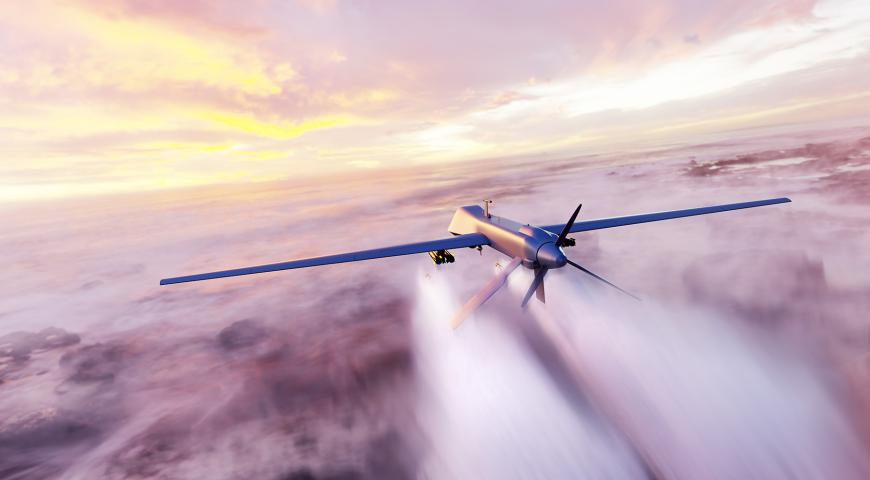We are ‘Better Together’: A contemporary case study #2
This most recent example of the ADF and AFoP working ‘better together’ gleaned five key lessons.
These lessons are intended to be instructive rather than prescriptive. Furthermore, they are offered respectfully.[i]
Lesson 1: Be driven by a Shared Mission
Being driven by a clear, shared mission is vital for working ‘better together.’ A common mission, comprising objective and purpose, provides the unifying, cementing principle. It cuts through the inevitable chaos, uncertainty and friction characteristic of all complex military enterprise and human endeavour.
The shared mission, established collaboratively, from the outset, by both the ADF and the AFoP, maintained two focuses:
Firstly, enhance both nations counter terrorist and counter violent extremist capabilities. This focus rests on the premise that over time, via deterrence and coercion, this enhancement will improve the security, stability and prosperity of Australia, the Philippines and the broader region.
The ADF’s contribution to this aspect of the shared mission was, and remains, modest, yet meaningful; subtle, but profound. Vitally, it was developed in close partnership with the AFoP, during and following the Marawi crisis.
The second, component of the common mission is to strengthen the relationship between the ADF and the AFoP.
Lesson 2: Be pulled by Shared Values
In the wake of the Marawi crisis, the ADF and AFoP deemed it essential their renewed cooperation be driven by a shared mission; and pulled by shared values. These values were collective resolve, teamwork, mutual learning and respect. At times explicit, but mostly subliminal, these values continuously guided efforts at all levels. In all cases, they enabled both the ADF and AFoP to work ‘better together.’
Collective resolve against the common threat of terrorism and violent extremism united the ADF and AFoP in purpose, shared understanding, trust and effort.[ii]
Forging one team from many allows ordinary people to achieve extraordinary outcomes. Forming a ‘team of teams’[iii]from the many stakeholders, military and whole of Government, of both nations involved in this collaborative enterprise, pulled the mission rapidly forward. For both nations, it enabled a tactical, operational and strategic yield disproportionate to the investment made; an objective, if not the acme, of all military and strategic planners.
A spirit of mutual learning fostered respectful engagement and genuine relationships at all levels, with all stakeholders. Both parties eschewed dogmatic, patronising and conceited thinking – particularly behaviour seeking to mould each other into their own image. Likewise, honesty was prioritised over knowledge tariffs and other forms of intellectual protectionism. Such behaviour asphyxiates the mutual learning essential for mission achievement.
Respect characterised the bilateral relationship. It encouraged empathy, emotional maturity and a willingness to walk a mile in each other’s shoes. It dissuaded cognitive biases and superiority illusions.
The value of respect allowed the mission to weather the inevitable storms of tension and friction distinguishing all human interaction. It consistently defeated personal and intellectual arrogance and ego. It inspired empathy, humility, judgment and patience. On occasion, tension between stakeholders, mostly over creative differences, presented. Friction, caused by a lack of shared consciousness, purpose and trust manifested from time to time. In each and every case, respect enabled all those associated with the mission to preserve its intent and accelerate its momentum.
Lesson 3: Pursue your unique factor.
This lesson learned enabled the ADF to focus on its comparative advantage, its unique factor; and to do so intensely. It compelled the application of the mantra – focus and simplicity– and eluded the common trap of being everywhere but nowhere.
With nil hubris or presumption intended, in this case study, the ADF’s unique factor, its comparative advantage, remains threefold.
Firstly, it is in developing leading urban operations capability, mariner and mission- ready skills, maritime security patrols, airspace control and joint targeting and information operations proficiencies. These competencies are the bedrock of any professional military force; the truest source of competitive advantage on current and future battlefields.
Secondly, ADF personnel are authentic, trustworthy, respectful and team players.[iv]In the Philippines, and arguably globally, such qualities are the coins of the realm.
Of course, no Defence Force, no country, possesses a unique factor, or holds a comparative advantage, in everything. This is why the concept of working and being ‘better together’ is such a potent concept. It allows the sharing and merging of unique factors, comparative advantages. It mitigates the risk of unique, and shared vulnerabilities. It harnesses the synergy first articulated in Aristotle’s the whole is greater than the sum of the parts.
Lesson 4: Be Responsive
It would be fair to say the Australian Government and the ADF, in cooperation with their Philippine counterparts, proved highly responsive when the opportunity, or need, presented. It commenced with the rapid deployment of RAAF surveillance assets in June 2017, immediately following the terrorist seizure of Marawi in late May. It continued with the commencement of counter terrorist and violent extremist training and bilateral maritime security activities, in both Australia and the Philippines, on the declaration of victory in Marawi.
This case study reaffirms the need for military forces, and Governments, to be truly responsive if they are going to collaborate on counter terrorism, counter violent extremism, or any endeavour, in an effective, timely fashion. Being responsive is key to being ‘better together.’[v]
Lesson 5: Stay the Course
The final lesson learned from the enduring counter terrorist and counter violent extremist collaboration between the ADF and AFoP is that to be ‘better together,’ one must stay the course.
The need for cooperation on countering terrorism and violent extremism is unlikely to change. Australia’s most recent Defence White Paper warns of dangerous trends, and not solely terrorism. This case study is but one, among many, informing all that defeating, or at least effectively confronting these trends, requires a collaborative, and enduring, effort. [vi][vii][viii]
[i]Perceptive lessons learned by ADF junior leaders on working ‘better together’ with the AFoP are accessible at The Cove blog siteOperating as an Australian Army Training Adviser ‘Big 5’ – The Philippines; Eating Humble Pie: How Going to the Wrong Objective Tells a Story about Mentoring
[ii]As the Prime Minister of Australia remarked during his visit to a combined urban operations demonstration at Camp Aguinaldo in November 2017 ‘we are all in the same fight, and that is why now, more than ever, the Australian Defence Force and Armed Forces of the Philippines are working together, supporting each other, learning from each other, fighting the fight we cannot afford to lose!’ https://www.youtube.com/watch?v=P16S4itmsEo
https://www.youtube.com/watch?v=hYDOPsV2ih0 https://www.facebook.com/hqjoc/videos/2032903930332289/
[iii]See General Stanley McChrystal’s best-seller ‘Team of Teams: New Rules of Engagement for a Complex World.’
[iv]Chief of Army Statement ‘Army in Motion,’ ‘[Our people] lead, inspire and make a difference. They are our competitive advantage…Our people understand their context and exercise sound judgment…Our leaders are authentic.’
[v]Op cit ‘Army in Motion,’ ‘Preparedness is dynamic. It requires us to be ready now…
We must be physically, morally and intellectually prepared for operational deployment, at any time, wherever we are needed.’
[vii]Op cit footnote viii.
[viii]Perhaps the final word on staying the course, and being ‘better together,’ is left to Australia’s current Prime Minister, the Honorable Scott Morrison, who, during a recent statement of Australia’s pivot to the Pacific noted ‘This is not just our region, or our neighbourhood. This is our home. It’s where Australia can make the biggest difference in world affairs…So the strategic architecture of our Pacific ‘step-up’ is taking shape, it’s in place. It is part of a larger vision of Australia as a force for good in the Pacific, working with others [better together] to ensure our region is secure, stable and sovereign.’ Prime Minister Scott Morrison’s address,‘ Australia and the Pacific: A New Chapter,’ at Lavarack Barracks, Townsville, 8 November 2008.
Social Mastery
Please let us know if you have discovered an issue with the content on this page.
Comments
Start the conversation by sharing your thoughts! Please login to comment. If you don't yet have an account registration is quick and easy.




